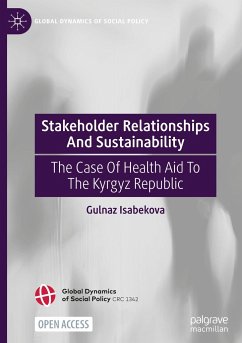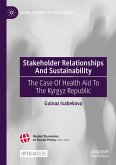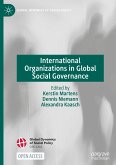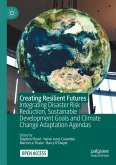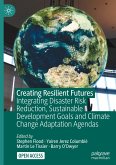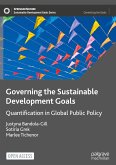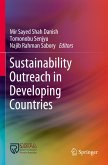This open-access book analyses how stakeholder relationships impact the sustainability of health aid. It does this by providing an overarching analytical framework, which allows for a systematic analysis of sustainability, relationships, and a possible causal link between these phenomena. The book goes beyond universal paradigms and detailed single-case studies by offering a thorough analysis of development projects to identify the factors that are also applicable to similar initiatives in comparable contexts.
Empirically, it focuses on two health initiatives, both implemented in the Kyrgyz Republic, a country pursuing a sector-wide approach to health aid. Unique primary material provides insights into a geographic region that is mostly neglected, and will be of interest to students and researchers of social policy, development studies, international health and those focusing on the post-Soviet region and Central Asia.
Hinweis: Dieser Artikel kann nur an eine deutsche Lieferadresse ausgeliefert werden.
Empirically, it focuses on two health initiatives, both implemented in the Kyrgyz Republic, a country pursuing a sector-wide approach to health aid. Unique primary material provides insights into a geographic region that is mostly neglected, and will be of interest to students and researchers of social policy, development studies, international health and those focusing on the post-Soviet region and Central Asia.
Hinweis: Dieser Artikel kann nur an eine deutsche Lieferadresse ausgeliefert werden.

